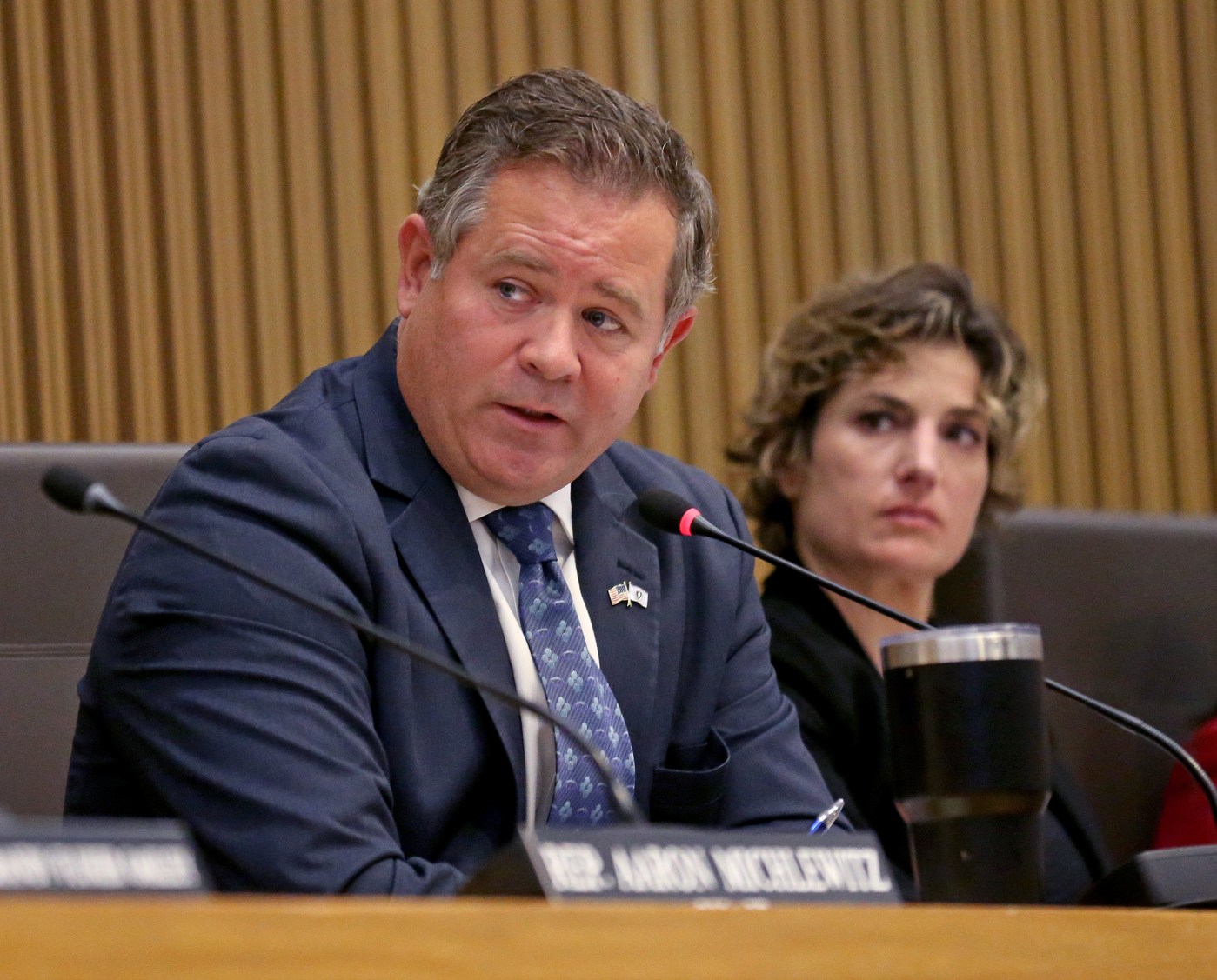
Recent shootings place urgency on Beacon Hill pols looking for gun reform compromise
Beacon Hill lawmakers tasked with hashing out changes to firearm laws in Massachusetts said recent shootings across the state have placed an urgency on work to resolve differences between two competing gun reform proposals.
Firearm bills that have separately passed the House and Senate this session largely cover the same topics — untraceable homemade guns and the ability to convert a semi-automatic firearm into an automatic one, among other things — but diverge enough in the details that a group of six lawmakers was tasked with finding a compromise, which met for the first time Wednesday.
Rep. Michael Day, who co-chairs the Legislature’s Judiciary Committee and is the lead House negotiator, said Massachusetts has seen 88 shootings since September, 54 residents injured, and 46 killed, not including suicides attempted or ones that were carried through.
“We know these numbers are going to spike. They always do. Every summer, we get a spike in gun violence,” the Stoneham Democrat said. “So that’s coming. So the longer we wait on getting this bill done and getting the language lined up and to the governor’s desk, the longer we have to deal with this pandemic. And it is a pandemic.”
Sen. Cindy Creem, the lead Senate negotiator, said producing a final bill is “going to take time, effort, and some compromise.”
“But I’m confident we’ll be successful. And as we go through the process, my goal, as was the Senate’s goal, will be to develop legislation that will meaningfully impact and improve public safety, while respecting the rights of law and responsible gun owners,” the Newton Democrat said.
Rep. Carlos González, a Springfield Democrat, said his hometown has been “devastated” by gun violence, including from 32 murders last year — some that involved children — and a shooting earlier this month at a local high school.
“Responsible gun ownership is a fundamental right protected by our Constitution. And our mission, and I would think that everybody would agree, is not to infringe on anybody’s legal rights,” he said. “I know that everybody stands solid on that issue. But we must ensure that it is exercised in a manner that prioritizes public safety.”
The six lawmakers met publicly Wednesday and scheduled another open meeting for next week, a break from the typical practice of closing off proceedings and keeping negotiations private. Creem said there has not been a decision on whether to keep all meetings public.
“We certainly want our members to participate and have a thorough discussion about all the issues with all the members. Whether that ends up being a bit more fruitful with or without the public, we haven’t decided,” she said.
Open negotiations over competing bills is rare on Beacon Hill. But Creem was part of a 2012 group that kept deliberations on criminal justice reform legislation open to the public.
“It went on and on and on,” Creem said of those talks. “It was long. We did a good job at criminal justice reform.”
Another group of lawmakers in 2016 kept negotiations open to the public on reforms to the state’s public records law.


